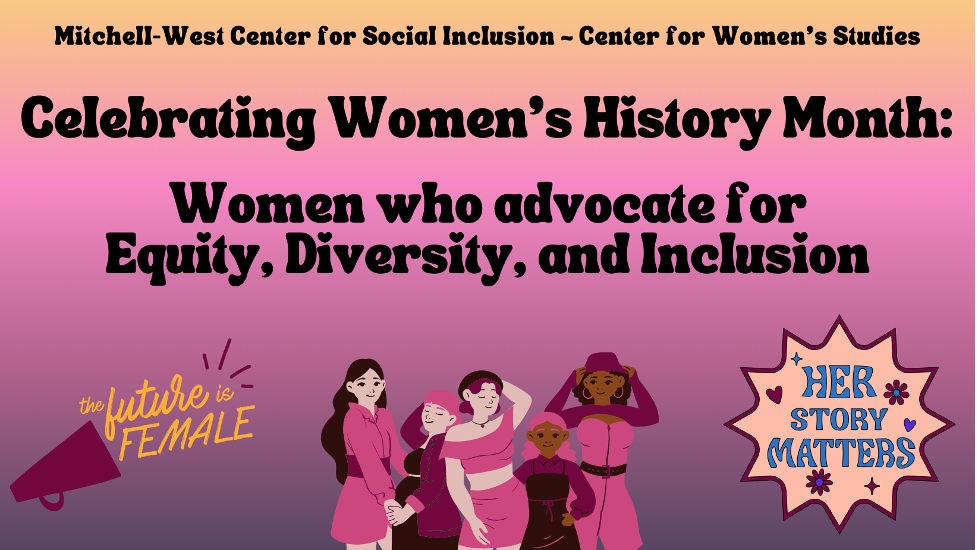
This month we celebrate women all around the world, young and old, past and present, during Women’s History Month. This year, the theme for WHM is “Women who advocate for Equity, Diversity, and Inclusion”, pulling focus to some of the most influential women throughout history who have paved the way (and continue to do so) for future generations to live in a more accepting and diverse world.
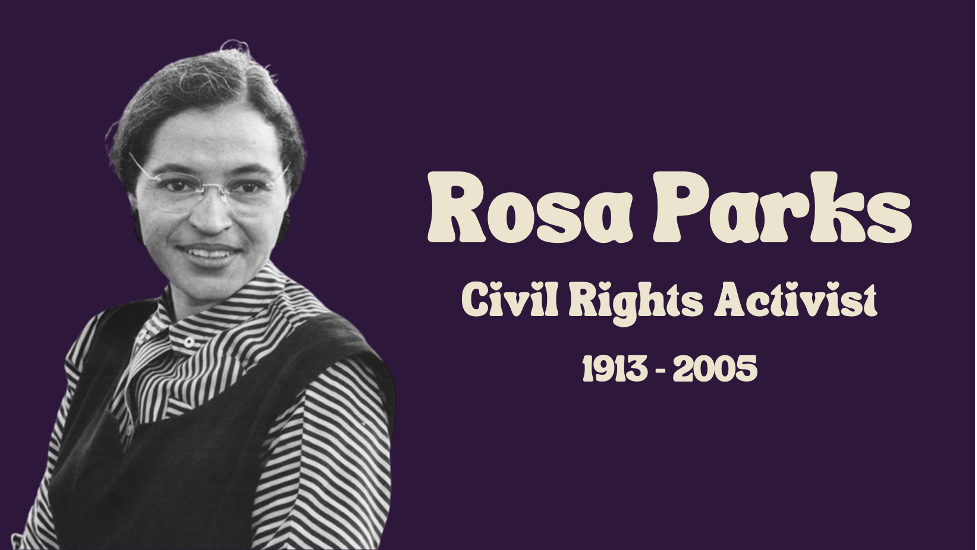
Rosa Parks was an American activist from Montgomery, Alabama, and is perhaps one of the most well-known women who have advocated for equity, diversity, and inclusion. She played a pivotal role in the Civil Rights Movement, as well as the Montgomery Bus Boycott. Congress has named her both “the mother of the freedom movement” and “the first lady of civil rights.” On December 1, 1955, Parks rejected bus driver James F. Blake's order to vacate a row of four seats in the "colored" section in favor of a white passenger, once the "white" section was filled.Parks was not the first person to resist bus segregation, but the NAACP believed that she was the best candidate for seeing through a court challenge after her arrest for civil disobedience in violating Alabama segregation laws, and she helped inspire the Black community to boycott the Montgomery buses for over a year. After retirement, Parks wrote her autobiography and continued to insist that there was more work to be done in the struggle for justice. Parks received national recognition, including the NAACP's 1979 Spingarn Medal, the Presidential Medal of Freedom, the Congressional Gold Medal, and a posthumous statue in the United States Capitol's National Statuary Hall. Upon her death in 2005, she was the first woman to lie in honor in the Capitol Rotunda.
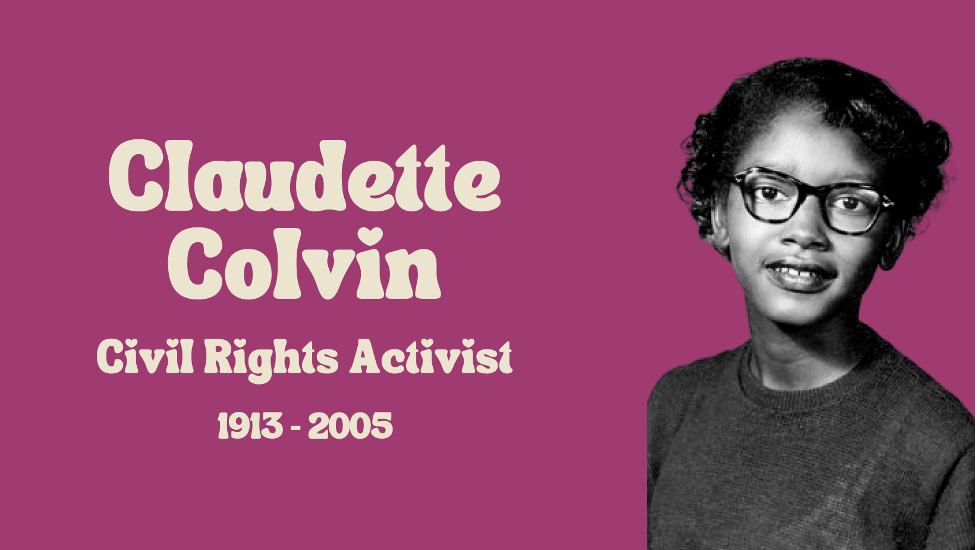
Claudette Colvin is an American activist from Montgomery, Alabama, and unlike Rosa Parks, is not very well-known for her contributions to the Montgomery Bus Boycott and the Civil Rights Movement as a whole. On March 2, 1955, she was arrested at the age of 15 in Montgomery, Alabama, for refusing to give up her seat to a white woman on a crowded, segregated bus. This occurred nine months before the more widely known incident in which Rosa Parks, secretary of the local chapter of the NAACP, helped spark the 1955 Montgomery bus boycott. For many years, Montgomery's black leaders did not publicize Colvin's pioneering effort. Colvin's case was dropped by civil rights campaigners because Colvin was unmarried and pregnant during the proceedings. It is now widely accepted that Colvin was not accredited by civil rights campaigners at the time due to her circumstances. Rosa Parks stated: "If the white press got ahold of that information, they would have [had] a field day. They'd call her a bad girl, and her case wouldn't have a chance."
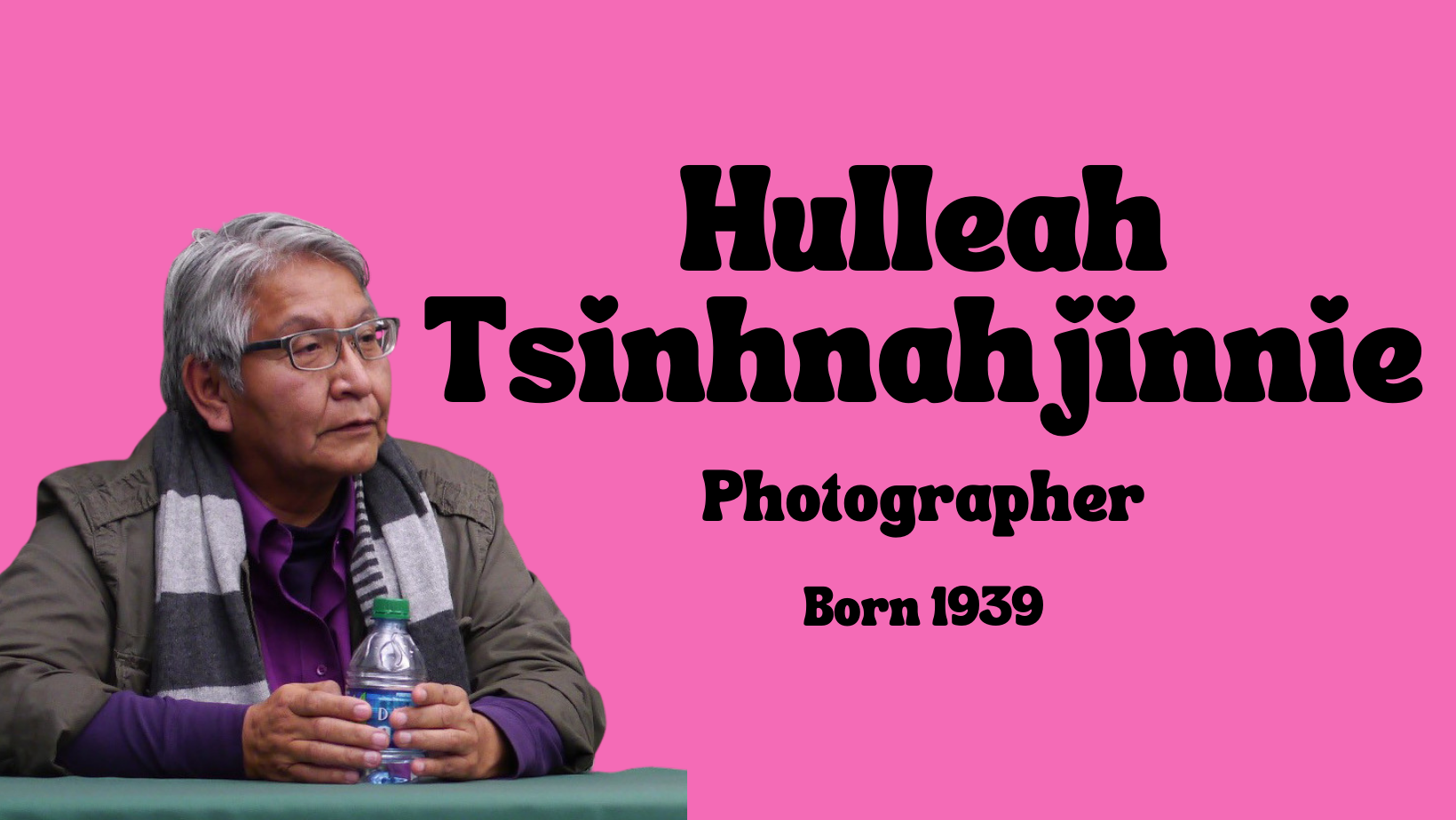
Hulleah Tsinhnahjinnie is a Seminole-Muscogee-Navajo photographer, museum director, curator, and professor. She is also self-identified as a lesbian woman. Tsinhnahjinnie currently serves as the director of the C.N. Gorman Museum and teaches at University of California, Davis. In 1975, she began her art education at the Institute of American Indian Arts in Santa Fe, New Mexico. When she was 23, Tsinhanahjinne moved to the San Francisco Bay Area to continue her education. In 1978, Tsinhnahjinnie enrolled in the California College of Arts and Crafts (now California College of the Arts) in Oakland, California, where she earned a Bachelor of Fine Arts in painting with a photography minor in 1981. She earned a Master of Fine Arts degree in Studio Arts from University of California, Irvine in 2002. During her time at Irvine she focused her work toward digital photos and videos, stating she "turned to photography as a weapon when her aesthetic/ethnic subjectivity came under fire." Her body of work "plays upon her own autobiography and what it means to be a Native American." Her work uses photography as a means to re-appropriate the Native American as a subject. Although she is a photographer, Tsinhnahjinnie often hand-tints her photographs or uses them in collage. Tsinhnahjinnie's collage When Did Dreams of White Buffalo Turn to Dreams of White Women? (1990) raises questions about Native women's internalized definitions of beauty.
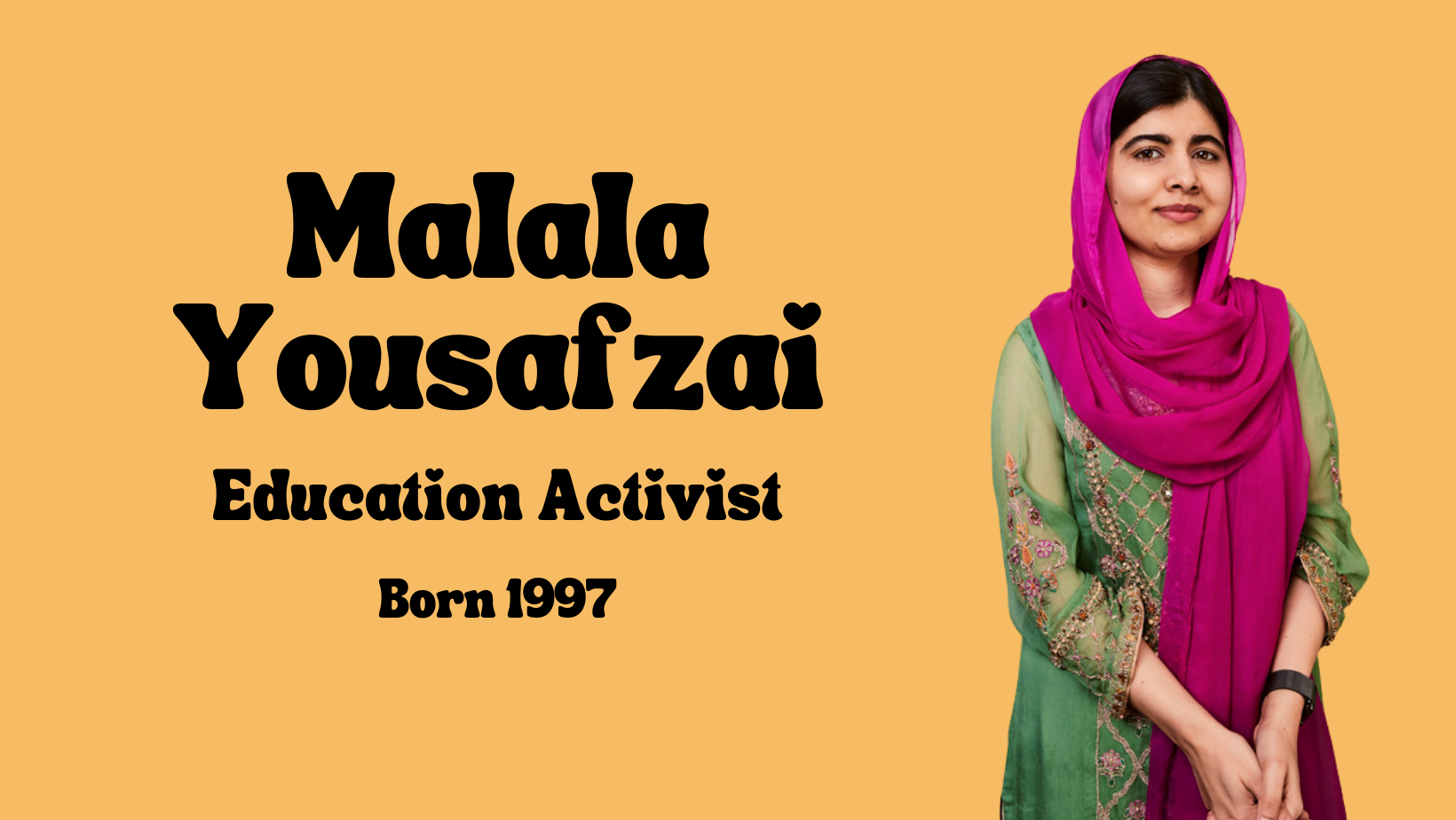
Malala Yousafzai is a Pakistani activist and 2014 Nobel Peace Prize laureate. She is the world’s youngest Nobel Prize laureate, the second Pakistani and the first Pashtun to receive a Nobel Prize. Yousafzai is a human rights advocate for the education of women and children in her native homeland, Swat, where the Pakistani Taliban had at times banned girls from attending school. Her advocacy has grown into an international movement, and according to former Prime Minister Shahid Khaqan Abbasi, she has become Pakistan's "most prominent citizen." In 2011, she received Pakistan's first National Youth Peace Prize. She rose in prominence, giving interviews in print and on television, and was nominated for the International Children's Peace Prize by activist Desmond Tutu. On 9 October 2012, while on a bus in Swat District after taking an exam, Yousafzai and two other girls were shot by a Taliban gunman in an assassination attempt targeting her for her activism; the gunman fled the scene. She was struck in the head by a bullet and remained unconscious and in critical condition at the Rawalpindi Institute of Cardiology, but her condition later improved enough for her to be transferred to the Queen Elizabeth Hospital in Birmingham, UK. The attempt on her life sparked an international outpouring of support.
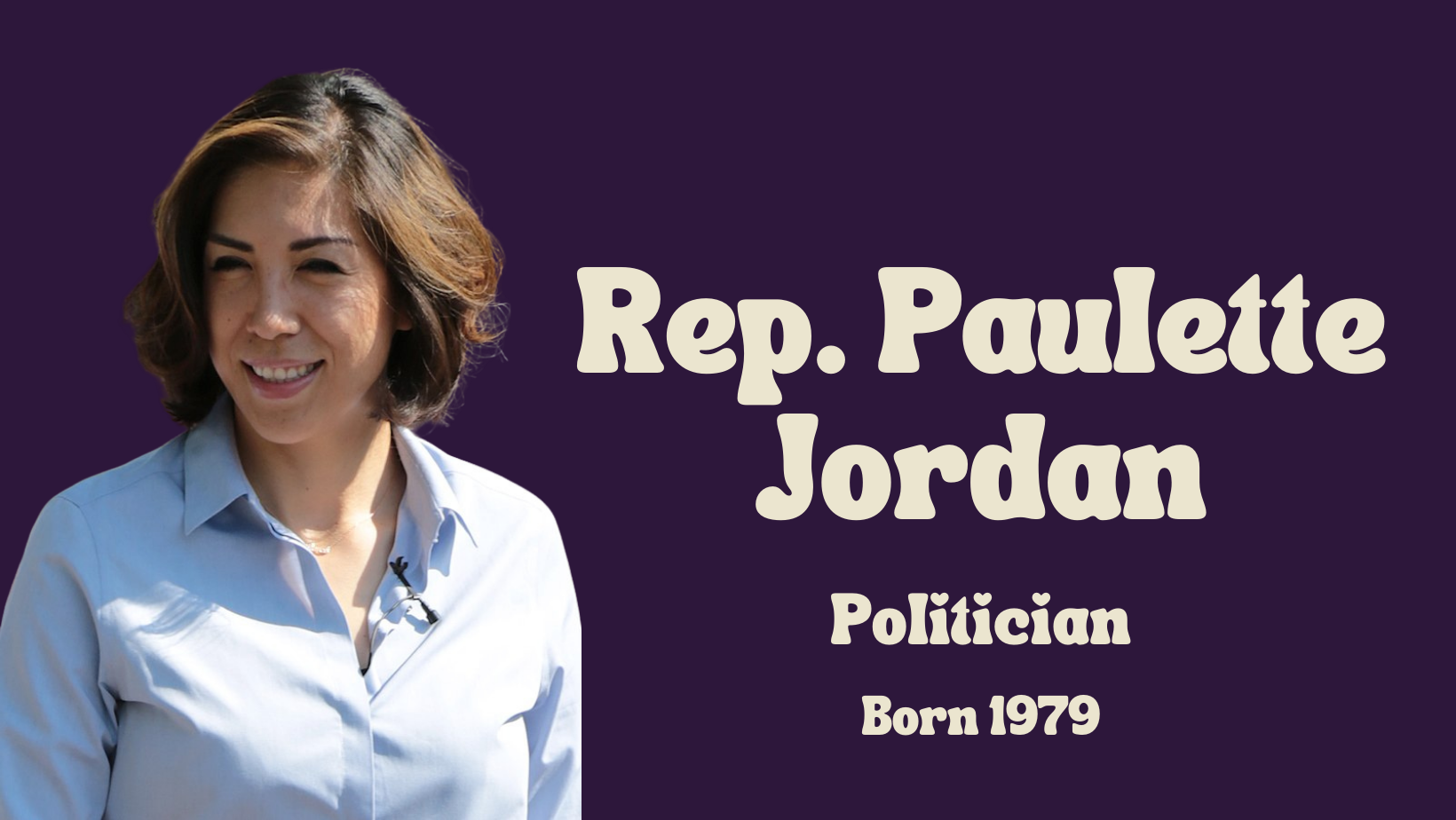
Paulette Jordan is an American politician who served in the Idaho House of Representatives as a member of the Idaho Democratic Party from December 1, 2014, until February 14, 2018. She previously served on the Coeur d’Alene Tribal Council, its sovereign government. Jordan was born into a ranching and farming family in northern Idaho, where she still holds timber and farmland. She is an enrolled citizen of the Coeur d'Alene tribe, which is based on the reservation of the same name. She also has Sinkiuse (known as the Moses–Columbia Band of the Colville Confederacy), Nez Perce, and Yakama–Palus ancestry. She is a descendant of the 19th-century chiefs Moses and Kamiakin, and 20th-century Colville leader Lucy Friedlander Covington (1910 – 1982). During her time in the Idaho House of Representatives, Jordan served on the Business Committee, the Energy, Environment, and Technology Committee, and the State Affairs Committee from 2015 to 2018. In addition, Jordan was selected to serve on the Legislative Council, which oversees the management of the Capitol and permanent staff.
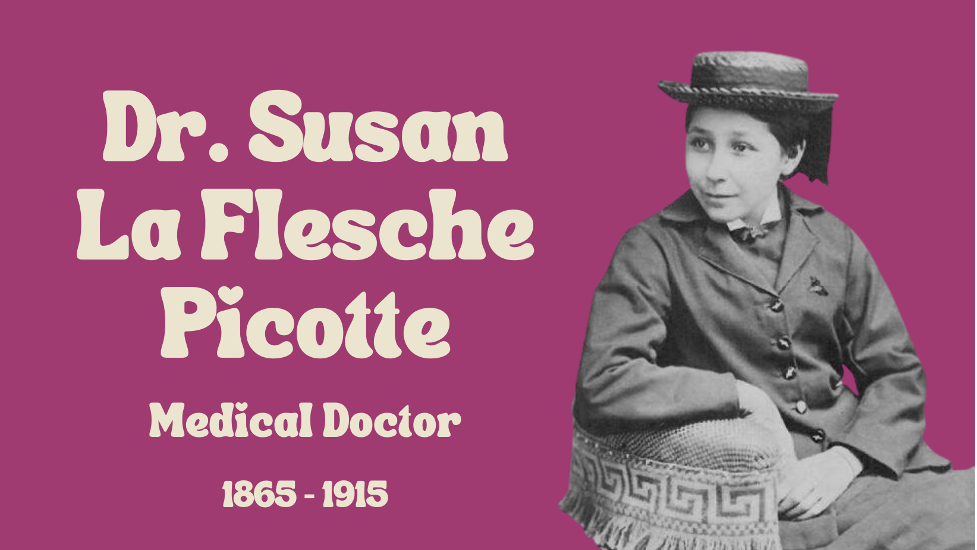
Susan La Flesche Picotte was a Native American medical doctor, reformer, and member of the Omaha tribe. She is widely known as one of the first Indigenous people, and the first Indigenous woman, to earn a medical degree. She campaigned for public health as well as the formal, legal allotment of land to members of the Omaha tribe. Picotte was an active social reformer as well as a physician. She worked to discourage alcohol consumption on the reservation where she worked as the physician, as part of the temperance movement. Picotte also campaigned for the prevention and treatment of tuberculosis, which then had no cure, as part of a public health campaign. She also worked to help other Omaha navigate the bureaucracy of the Office of Indian Affairs and receive the money owed to them for the sale of their land.
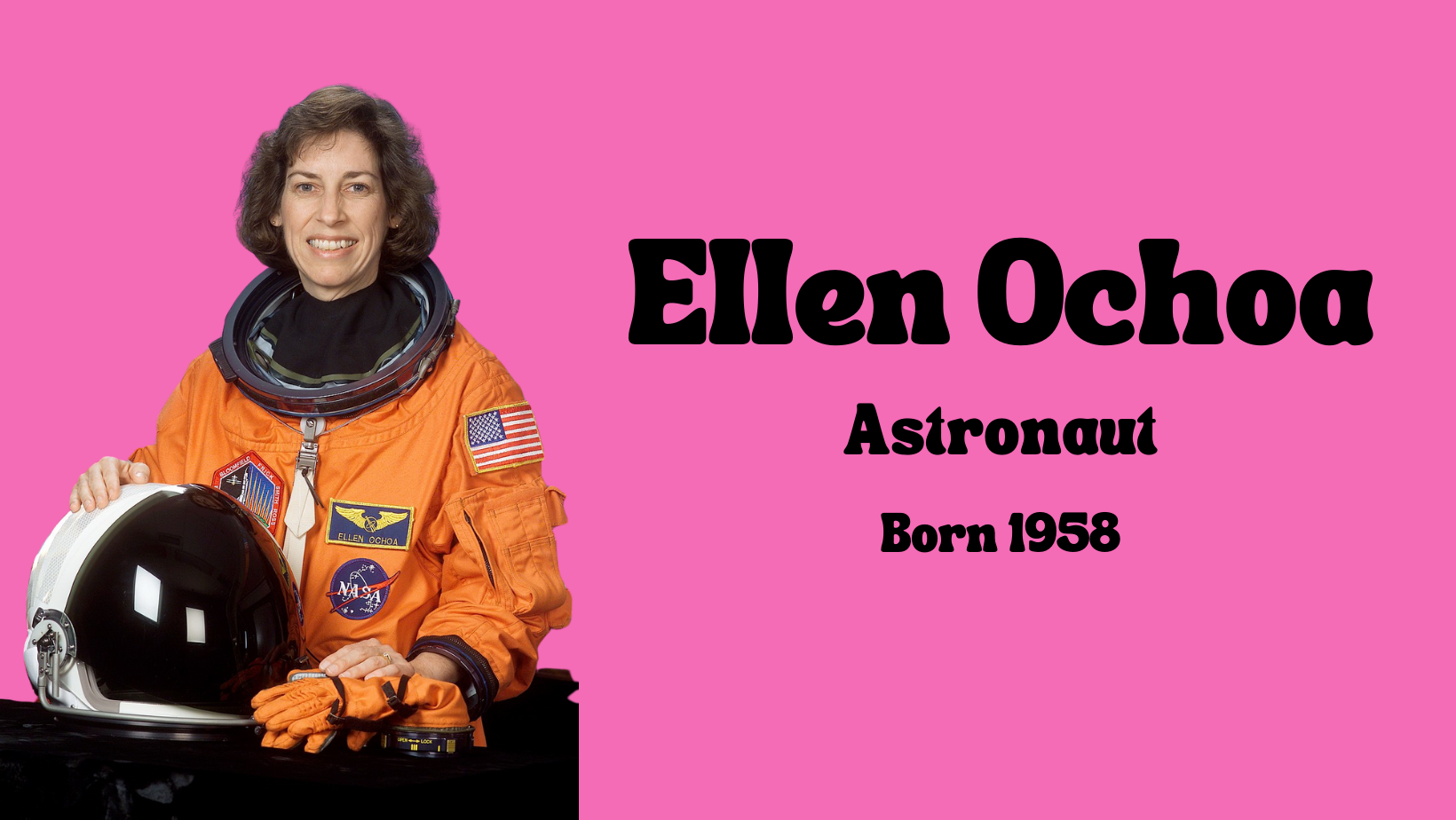
Ellen Ochoa is an American engineer, former astronaut, and former director of the Johnson Space Center. In 1993, Ochoa became the first Hispanic woman to go to space when she served on a nine-day mission aboard the Space Shuttle Discovery. Ochoa became director of the center upon the retirement of the previous director, Michael Coats, on December 31, 2012. She was the first Hispanic director and the second female director of the Johnson Space Center. Her paternal grandparents emigrated from Sonora, Mexico to Arizona and later to California where her father was born. At the NASA Ames Research Center, she led a research group working primarily on optical systems for automated space exploration. Ochoa was selected by NASA in January 1990 and became an astronaut in July 1991. Her technical assignments in the Astronaut Office included serving as the crew representative for flight software, computer hardware, and robotics, Assistant for the Space Station to the Chief of the Astronaut Office, lead spacecraft communicator (CAPCOM) in Mission Control, and acting as Deputy Chief of the Astronaut Office.

Reshma Saujani is an American lawyer, politician, civil servant, and the founder of the nonprofit organization "Girls Who Code", which aims to increase the number of women in computer science and close the gender employment difference in the field. In 2009, Saujani ran for the U.S. House of Representatives seat from New York's 14th congressional district, becoming the first Indian-American woman to run for Congress. In 2013, she ran as a Democratic candidate for Public Advocate, coming third in the primary. Saujani founded Girls Who Code in 2012 after visiting schools and becoming aware of the gender disparity in computing while campaigning for Congress. Following the 2012 founding of Girls Who Code, Saujani was listed in Fortune’s 40 Under 40 list. Saujani was a speaker at the 2016 TED Conference, with her talk focusing on encouraging young girls to take risks and learn to program. In February 2018, Saujani launched a companion podcast of the same name to her book Brave, Not Perfect. Since its launch, the podcast has featured guests including First Lady Jill Biden, Representative Alexandria Ocasio-Cortez, and many others.
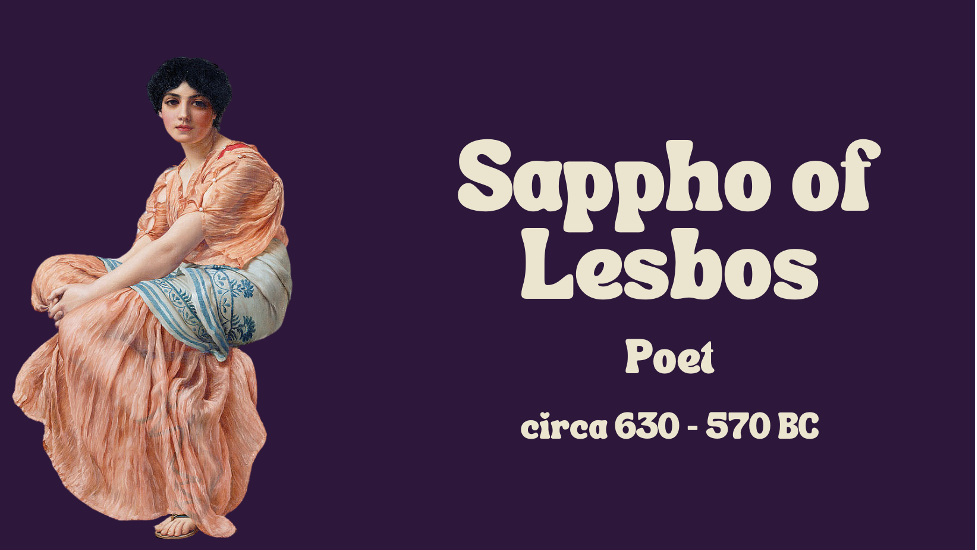
Sappho was an Archaic Greek poet from the island of Lesbos. Sappho is known for her lyric poetry, written to be sung while accompanied by music. In ancient times, Sappho was widely regarded as one of the greatest lyric poets and was given names such as the "Tenth Muse" and "The Poetess". Most of Sappho's poetry is now lost, and what is extant has mostly survived in fragmentary form; only the Ode to Aphrodite is confirmed to be complete. It was not long after the rediscovery of Sappho that her sexuality once again became the focus of critical attention. In the early 17th century, John Donne wrote "Sapho to Philaenis", returning to the idea of Sappho as a hypersexual lover of women. The word lesbian is an allusion to Sappho, originating from the name of the island of Lesbos, where she was born. However, though in modern culture Sappho is seen as a lesbian, she has not always been considered so. The modern debate on Sappho's sexuality began in the 19th century and she has since become a model for the so-called New Woman – an independent and educated woman who desired social and sexual autonomy – and by the 1960s, the feminist Sappho was – along with the hypersexual, often but not exclusively lesbian Sappho – one of the two most important cultural perceptions of her.
Thank you
We hope you enjoyed this look into some influential and powerful women throughout history who have been advocates for diversity, equity, and inclusion in their work and lives. Be sure to join us for our Women of Action panel happening this month on Wednesday, March 20, at 5:30 PM in the GUC Loft to hear from a few local women and how their womanhood has impacted them and their work in the community! For more info, check out the event on Campus Groups!
